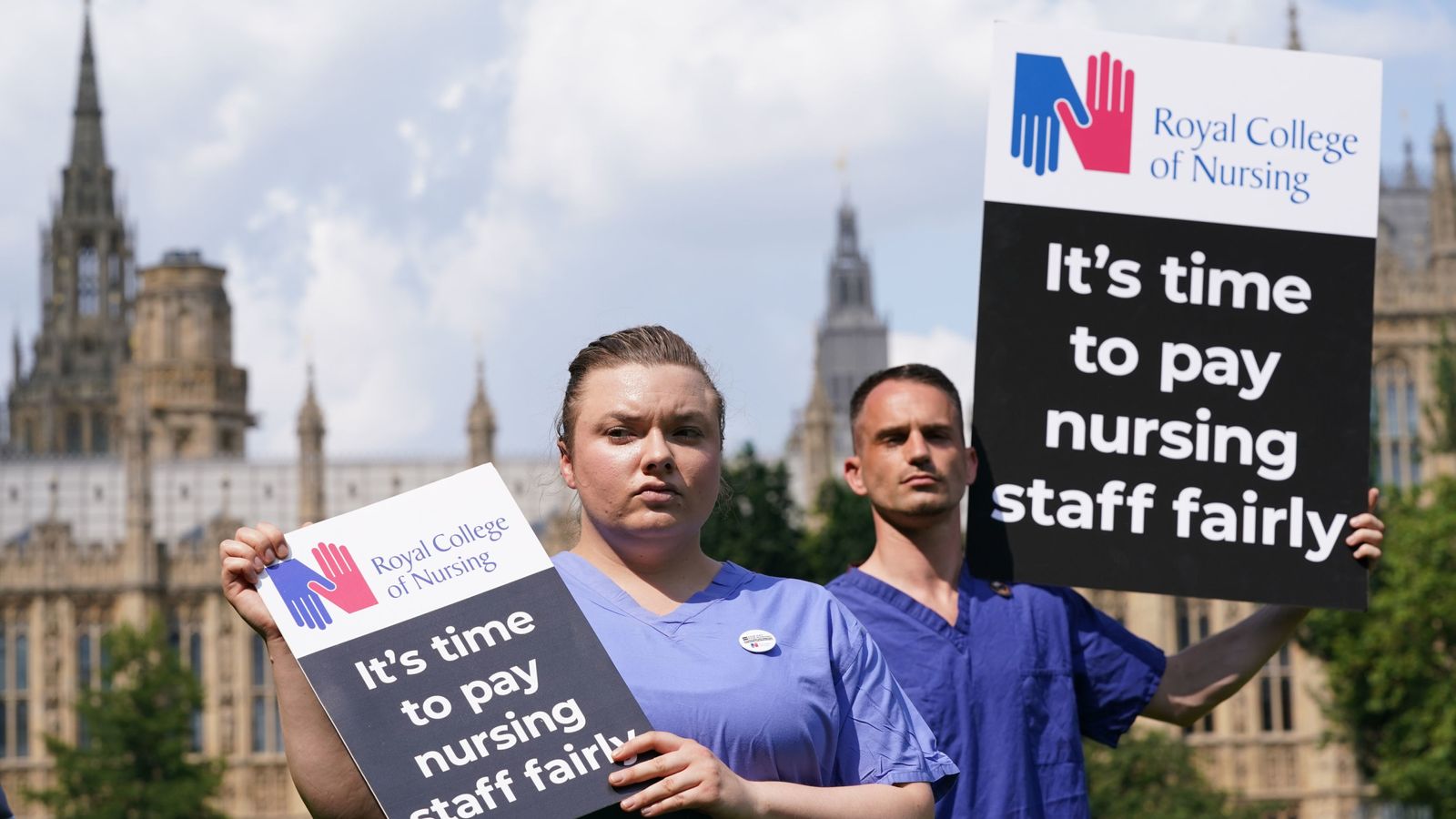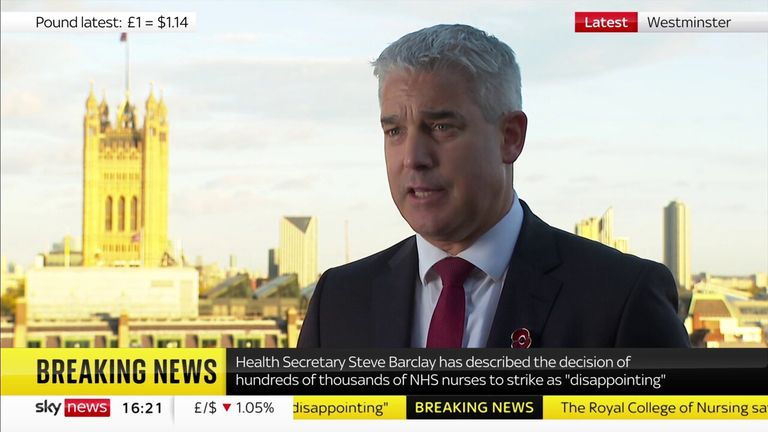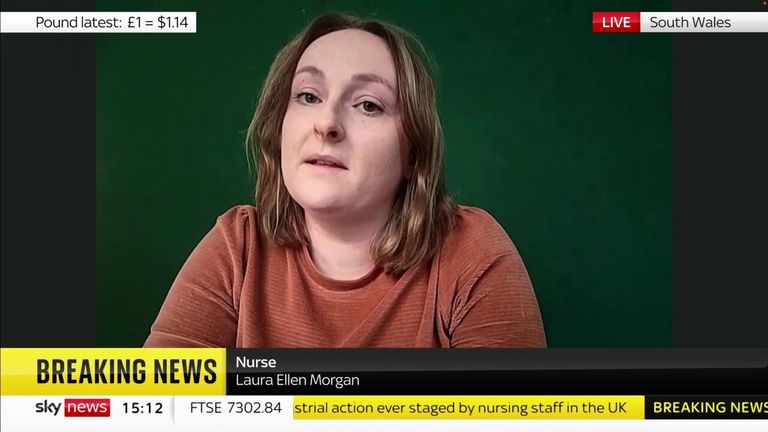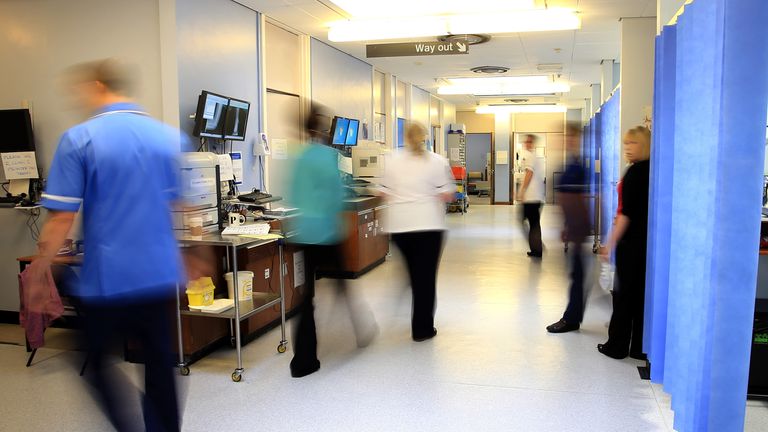A nursing union representing hundreds of thousands of nurses has voted to hold the first nationwide strike in its 106-year history.
The Royal College of Nursing (RCN) said the strike will affect the majority of NHS employers in the UK as nurses take action against pay levels and patient safety concerns.
The union said that many of the biggest hospitals in England would see strike action but others “narrowly missed” the legal turnout thresholds required for action.
All NHS employers in Northern Ireland and Scotland would be included and all bar one in Wales met the threshold, they added.
RCN general secretary and chief executive Pat Cullen said: “Anger has become action – our members are saying enough is enough.
“The voice of nursing in the UK is strong and I will make sure it is heard. Our members will no longer tolerate a financial knife edge at home and a raw deal at work.
“Ministers must look in the mirror and ask how long they will put nursing staff through this.
“While we plan our strike action, next week’s budget is the UK government’s opportunity to signal a new direction with serious investment. Across the country, politicians have the power to stop this now and at any point.
“This action will be as much for patients as it is for nurses.
“Standards are falling too low and we have strong public backing for our campaign to raise them. This winter, we are asking the public to show nursing staff you are with us.”
The union had urged more than 300,000 of its members to vote for industrial action over pay in the first statutory ballot on industrial action across the UK in the 106-year history of the Royal College of Nursing.
It had called for its members to receive a pay rise of 5% above the RPI inflation rate, which currently stands at above 12%.
This request has not been met by any UK nation.
Recent analysis showed an experienced nurse’s salary has fallen by 20% in real terms since 2010, the RCN said, adding that nurses are working the equivalent of one day a week for nothing.
‘Economically challenging times’ – health minister’s response
Health and Social Care Secretary Steve Barclay said the government “hugely values the work that nurses do”, and had already committed to raising their wages in line with recommendations from the independent pay review body.
He also told reporters they “recognised the contribution of nurses” last year, giving them a pay rise of 3% more than most other public sector workers.
But, Mr Barclay added: “We also need to recognise that these are economically challenging times. We need a strong economy in order to pay for a strong health care system and a demand of 17% – three times what most non-public sector workers will receive – is out of step with the economic circumstances that we face.”
The health secretary said his “door is open” for talks with the RCN and he looked forward to meeting them “in the days ahead”.
‘A strike across the NHS this winter isn’t inevitable’
Wes Streeting MP, Labour’s shadow health secretary, said: “There were no strikes in the NHS during 13 years when Labour was last in government.
“If we were in office today, we would be talking with the RCN and doing everything we can to prevent these strikes going ahead.”
The British Medical Association, which represents doctors, offered “support and solidarity” to nurses, with deputy chair Dr Emma Runswick adding: “It is still within the government’s gift to pay healthcare staff fairly for the vital, often lifesaving work that they do.
“We urge government to listen to the concerns of frontline health staff and deliver the investment that the NHS and its workforce so desperately need.”
Meanwhile, health workers in other unions, including ambulance staff, hospital porters and cleaners, are also voting on industrial action over pay.
UNISON head of health Sara Gorton said: “A strike across the NHS this winter isn’t inevitable.
“Unions want to work with ministers to solve the NHS staffing crisis and its impact on patient care. But that must start with another pay rise for health workers. Otherwise, delays and waits for patients won’t reduce.”




